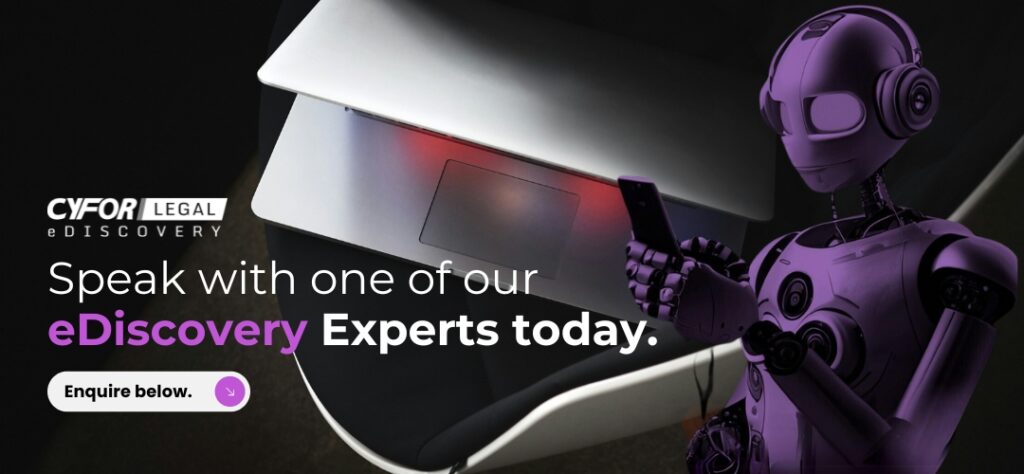Taming the Digital Beast
As the world continues to embrace digital transformation, the legal profession isn’t lagging behind. One area that’s particularly affected is discovery, or as we now know it, eDiscovery. It’s a crucial part of any legal proceeding, providing the backbone for case preparation. With digital documents and data repositories becoming the norm. Entirely understanding the latest eDiscovery trends is vital for any legal team looking to stay ahead of the game.
1. Technology Assisted Review (TAR)
Once a novel concept, TAR has now become a mainstay in eDiscovery. Transforming the process from a tedious, time-consuming affair into a streamlined, efficient operation. With the advent of AI and machine learning, TAR systems have only grown more sophisticated. UK courts have shown increasing acceptance of TAR, recognising its efficiency and reliability in identifying relevant documents.
In 2022, the UK High Court endorsed the use of predictive coding in eDiscovery in the case of Various Claimants v. WM Morrisons Supermarkets. Expect to see more of these rulings as TAR becomes the norm.
2. Data Privacy Regulations
In the wake of GDPR, businesses operating in the UK are grappling with the complex task of ensuring data privacy compliance while conducting eDiscovery. The regulations have necessitated a shift in the way companies handle EU residents’ data, affecting cross-border eDiscovery processes.
In light of Brexit, the UK has adopted its own data protection law, the UK GDPR, which mostly mirrors the EU version. Understanding these regulations is crucial for legal teams navigating eDiscovery.
3. Cloud-Based eDiscovery
Cloud-based eDiscovery tools have revolutionised the way legal teams handle large volumes of data. These tools offer scalability, flexibility, and cost-effectiveness. More importantly, they allow for secure remote access to data, making them particularly useful in the age of remote working. With more companies moving their operations to the cloud, expect to see an uptick in the adoption of cloud-based eDiscovery solutions.
4. Social Media as a Treasure Trove of Evidence
With the surge in social media use, these platforms have become a rich source of potential evidence. From tweets to TikTok videos, social media data can provide crucial insights into a case. However, they also present unique challenges, such as issues of authenticity and data privacy. Legal teams need to stay aware of these challenges and find effective ways to incorporate social media into their eDiscovery strategies.
5. Increased Focus on Cyber Security
With the rise in cyber-attacks, securing sensitive data during the eDiscovery process has become a pressing concern. This focus on cyber security is likely to grow, leading to an increased demand for secure eDiscovery platforms and protocols.
It’s clear that the landscape of eDiscovery is changing rapidly. Keeping up with these trends will allow legal teams to navigate the complex terrain of digital data and ensure that they’re ready to face the challenges and opportunities that lie ahead. Whether it’s understanding new regulations, adopting the latest technologies, or redefining their approach to social media, there’s no doubt that the future of eDiscovery is here, and it’s digital.
Discover our complete eDiscovery suite here.




